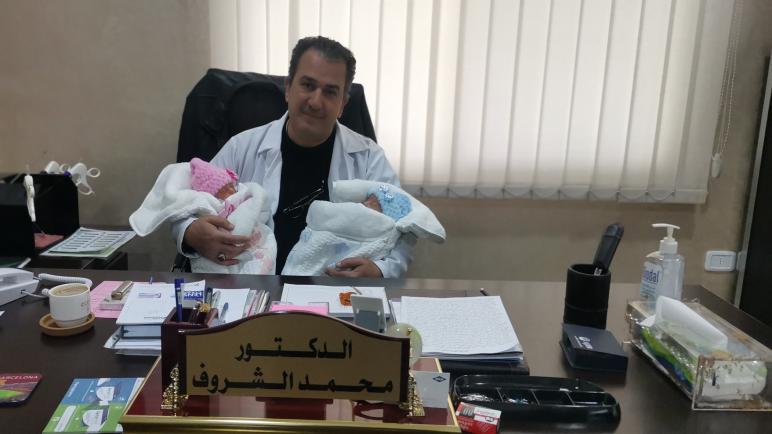Infertility is a major event in the lives and social environment of couples, as it is associated with many psychological and social problems.
The severity of these problems varies according to societies geographically, economically, religiously, and in terms of gender, male or female.
Psychological and social problems that may be associated with infertility include:
_Psycho-behavioral strike, difficulty in self-control in some situations, emotional reactions such as (fear, anxiety, loneliness, feeling guilt, sadness, writing, and sense of peers)
In the event of treatment, reactions range from fear of failure, anxiety, psychological and physical fatigue, schematics, depression, and despair.
Community view: While many members of society have become more open and sophisticated, we see many people accompanied by a backward gaze that increases the psychological suffering of families already suffering from psychological stress.
Unfortunately, the majority of the medical sector treats infertility as a vital medical issue while neglecting to pay attention to the mental, psychological, emotional, social, and cultural aspects despite its devastating impact on the individual’s mental health, family, and well-being, and lifestyle of couples.
More than 85 million people around the world suffer from this problem.
These problems are increasing in the Arab world, and this is due to social and cultural heritage reasons that attribute the inability to have children without men, which places a double burden on them and a devastating psychological impact of a sense of helplessness and a sense of inferiority in a society where women prove themselves to be a birth, with 40% of the causes of infertility associated with men and 40% of the causes of infertility are related to men. Women and 20% of both women are blamed for not having children or repeated projections.
In global studies, the overall rate of infertility-related psychological problems has been estimated at 20%-60% of couples and is caused by many complex factors such as sex, the duration of infertility, its treatment methods, community culture, and religion.
Reproduction in Eastern cultures, especially Arab cultures, is one of the highest values related to family stability and avoiding the psychological consequences of the family in general and women in particular and mental health in order to achieve the desire of women to engage in social life without psychological distress.
On the other hand, the tremendous development in reproductive assistance techniques has served as a double-edged sword, causing mental, social, moral, and financial concerns and the collision of some of these techniques with religion and community cultural heritage.
Unfortunately, there are no detailed studies on the psychological consequences of infertility and psychological problems in the case of treatment such as (dissatisfaction with the use of hormonal injections and psychological trauma in the event of failure of IVF attempt, and uneasiness in societies where children are desperate and sad in the event of failure or recurrence and anxiety during the treatment process and the unsecured result and feeling remorse and inferiority in the event of a vision of their spouses with their children and the inability to afford the costs of infertility treatment and expensive medications).
Infertility is often a silent struggle for patients struggling to conceive as they maintain their feelings of depression, anxiety, isolation, and loss of control are kept secret, and despite the prevalence of infertility, the majority of infertile women do not share their feelings with family or friends, which increases their psychological vulnerability and suppressed feelings can lead to a feeling of inferiority or depression and low self-esteem, resulting in a different lifestyle than usual and people undergoing treatment for reproduction. At high risk of mental or behavioral disorders, it is important to give their mental health behavioral functional therapy and accept things to protect them from worsening mental disorders.
Dr. Mohammed Al-Sharrouf is a consultant for obstetrics, obstetrics, infertility treatment, and IVF.
المصدر : https://wp.me/p70vFa-FwK



















